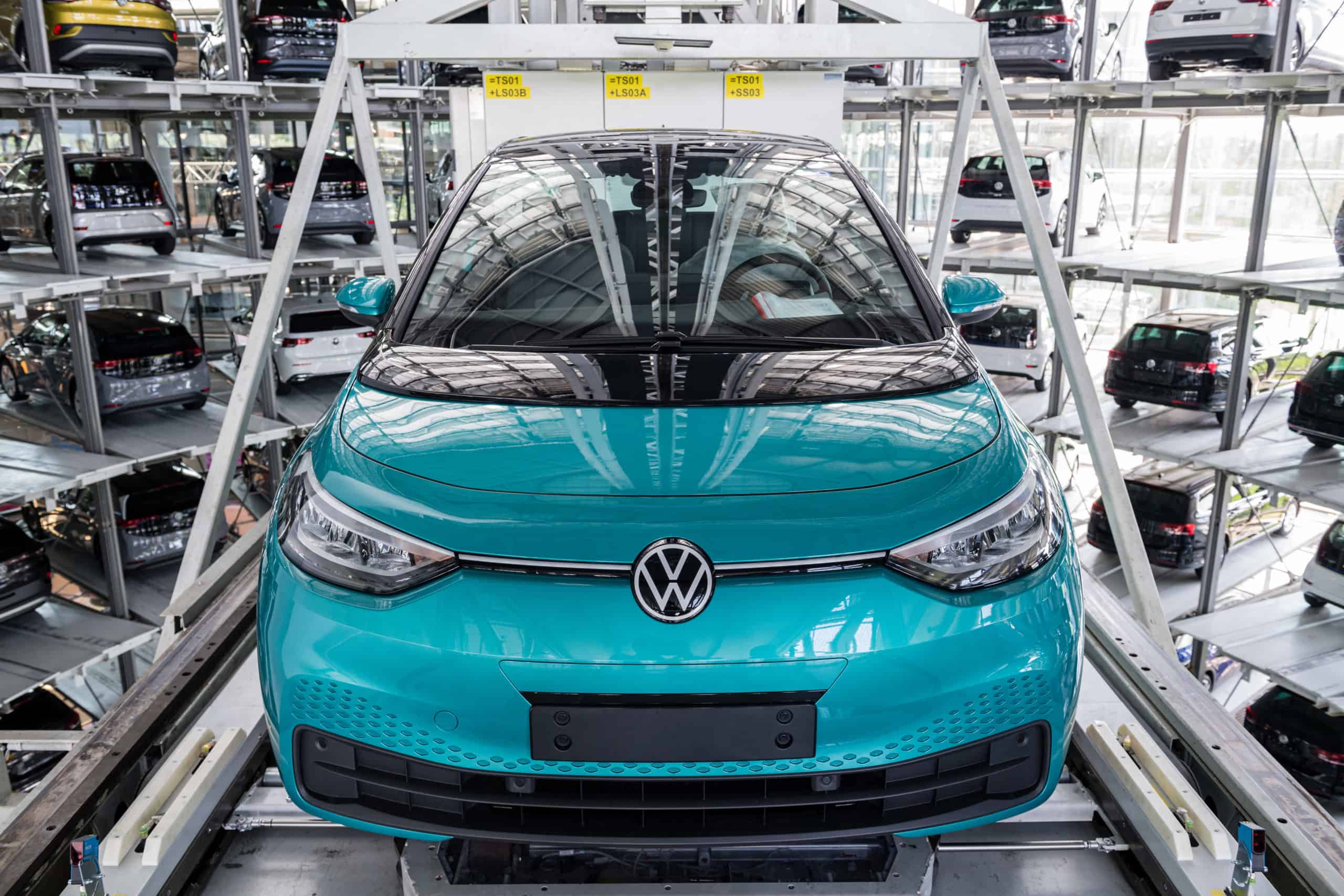-
The EU will unveil tougher 2030 CO2 emissions targets and regulatory proposals on July 14
-
The firm says it will take a little longer in South America and Africa due to the lack of infrastructure, political framework
Volkswagen has said it plans to stop producing cars with internal combustion engines in Europe for its eponymous flagship brand between 2033 and 2035, as the German auto giant accelerates its drive toward electric vehicles.
Carmakers around the world have started setting timetables to phase out combustion engines in the face of increasingly strict antipollution standards put in place to fight climate change, with Volkswagen’s electric push also following lingering reputational harm from the “dieselgate” scandal. Klaus Zellmer, board member for sales and marketing at Volkswagen’s passenger cars brand, told the Bavarian newspaper Muenchner Merkur that “we will make our entire fleet CO2 neutral by 2050 at the latest.”
“In Europe, we will leave the combustion engine vehicle market between 2033 and 2035,” he said in an interview published online Sunday.
He added that the change will take place “a little later in the US and China. In South America and Africa, due to the lack of political framework conditions and infrastructure, it will take a little longer.”
Volkswagen’s flagship brand had already said in March it was aiming for electric vehicles to account for 70 percent of its European sales by 2030.
Zellmer said: “As a mass-market manufacturer, VW has to adapt to different speeds of transformation in different regions.”
Audi, a subsidiary of Volkswagen, announced last week it would launch only fully electric vehicles from 2026 and halt manufacturing cars with internal combustion engines by 2033.
Sweden’s Volvo has said it plans to sell only electric models from 2030.
The EU will unveil tougher 2030 CO2 emissions targets and regulatory proposals on July 14, which are expected to force carmakers to speed up the transition to electric cars.
Contrary to the perception that the oil-rich Middle East will not be inclined to switch to electric mobility, the region is determined not to be left behind.
Oil that has fuelled the region’s wealth is a limited resource, and also a big source of environmental pollution.
UAE has led to drive towards electric mobility in the region. In 2017, it signed a deal for the acquisition of 200 Tesla EVs by the Dubai Taxi Corporation, as part of the country’s ambition to have 25% of trips in its area effected by self-driving vehicles by 2030, according to market research company Mordor Intelligence.
The neighboring Emirate of Sharjah meanwhile has ordered 50 semi-electric trucks from Tesla to add to its waste management fleet by the end of 2020. Sharjah additionally offers free charging to EV owners until 2025, while continuing to construct more charging points throughout its main city.
In Cairo, the World Bank is sponsoring an Air Pollution Management and Climate Change Project that is developing electric buses and related infrastructure – a project that, if successful, can be scaled up across the region, with an initial focus on the rest of Egypt, but also on Morocco and Jordan, according to Mordor report
Saudi Arabia announced last November that 5% of its parking spaces are to be designated solely for the use of EVs. Also, and even more importantly, the Saudi government has mandated that there will be EV charging stations at all municipal car parks.








